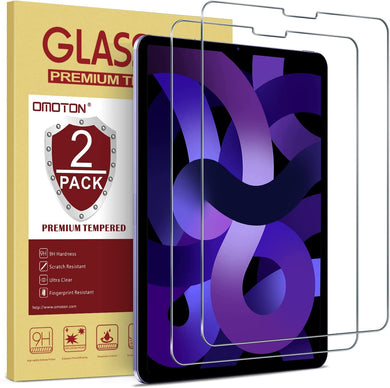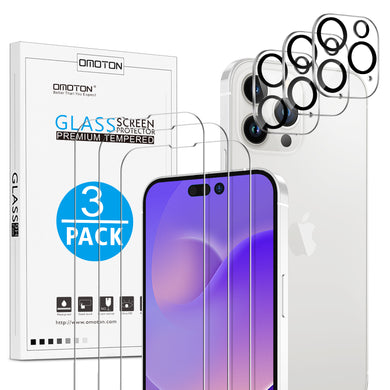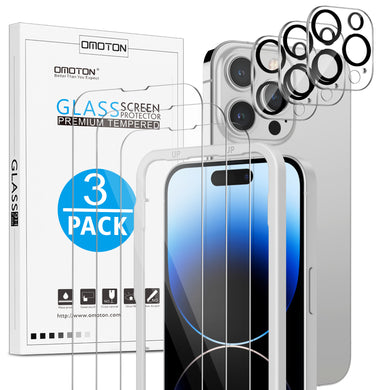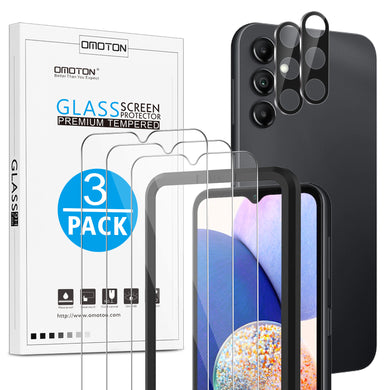Part 1. Introduction
1. The Significance of Screen Protectors
Screen protectors are essential in protecting your valuable devices (phones, tablets, watches, etc.) from scratches, cracks, and daily wear and tear. Speaking of screen protectors, there are mainly two types: tempered glass and plastic screen protectors. Different types of screen protectors offer distinct advantages and cater to different needs. Tempered glass excels in providing robust protection with high transparency and touch sensitivity, akin to a second skin for your screen. On the other hand, plastic protectors offer flexibility and are often more budget-friendly. This article delves into providing a comprehensive comparison between tempered glass and plastic screen protectors, ultimately helping you make an informed choice to shield your devices effectively.
2. Common Types of Screen Protectors
Among the variety of screen protectors available, tempered glass and plastic screen protectors are two of the most common choices. Tempered glass screen protectors are acknowledged for their durability and clarity, offering robust protection while maintaining high touch sensitivity and optical quality.
Plastic screen protectors, often made from materials like PET or TPU, are flexible and budget-friendly, providing a reliable shield against scratches and minor impacts. It is easy to install on your devices.
Let's break the topic into three sections and find out the best choice

Part 2. Tempered Glass Screen Protectors
1. What is tempered glass and its attributes?
Tempered glass is a specially treated type of toughened glass renowned for its increased strength and durability. It undergoes a process of controlled heating and rapid cooling, the glass is reinforced to withstand impacts, scratches, and daily wear and tear. This unique combination of resilience and transparency is what makes tempered glass protectors stand out. It provides robust defense for your device's screen while maintaining pristine visual clarity and touch sensitivity. Easy to install and compatible with a wide range of devices, tempered glass protectors are the go-to choice for seeking uncompromising protection without compromising the quality of your device's display.
2. What are the advantages of using tempered glass screen protectors?
Durability and Impact Resistance
One of the biggest advantages of using tempered glass screen protectors is the exceptional durability and impact resistance. These protectors are specifically designed to absorb and disperse the force of impacts, whether from accidental drops or bumps against hard surfaces. By doing so, they effectively shield your device's screen from cracks and scratches, retaining its original appearance. This level of protection prolongs the lifespan of your device.
Clarity and Touch Sensitivity
Another significant advantage of using tempered glass screen protectors is their remarkable clarity and touch sensitivity. Unlike some other protector materials that can distort the screen or reduce touch responsiveness, tempered glass maintains the original visual quality and touch sensitivity of your device's display. This means you can enjoy vibrant colors, sharp details, and smooth touchscreen interactions just as you would without a protector. It's like having a nearly invisible shield that doesn't compromise the user experience. Whether you're browsing, gaming, or watching videos, tempered glass screen protectors ensure that you get the most out of your device's display while keeping it safe from damage

Part 3. Plastic Screen Protectors
1. What are plastic screen protectors and their composition?
Plastic screen protectors are a popular choice for protecting the screens of various electronic devices, including smartphones and tablets. These protectors are typically made from materials like PET (polyethylene terephthalate) or TPU (thermoplastic polyurethane). The main difference is their flexibility and affordability. PET-based protectors are known for their high optical clarity and scratch resistance, providing a clear view of your screen while defending it against everyday wear and tear. TPU-based protectors offer a softer, more pliable feel and are often used for curved or contoured screens. Plastic screen protectors are lightweight, easy to install, and can effectively shield your device from scratches, minor impacts, and smudges, extending the life and usability of your screen.
2. What are the benefits of plastic screen protectors?
Flexibility and Lightweight
One of the significant benefits of plastic screen protectors lies in their flexibility and lightweight nature. The flexibility allows them to conform to the contours of curved screens, providing full coverage. Moreover, the lightweight design ensures that they add minimal bulk to your device, preserving its sleek and slim profile. Plastic screen protectors are an excellent choice for those who prefer a seamless and barely noticeable screen protection solution while still enjoying effective defense against scratches and minor impacts.
Affordability and Easy Application
Plastic screen protectors offer notable benefits, including affordability and ease of application. They are often more budget-friendly compared to their tempered glass counterparts, making them an accessible option for users looking to protect their devices. Additionally, plastic screen protectors are incredibly easy to apply. Their lightweight and flexible nature allows for a straightforward installation process, minimizing the chances of bubbles or misalignment.

Part 4. Choose the Right One Based on Scenarios
1. Different Lifestyles
Active Individuals vs. Indoor Users
Choosing the right screen protector often depends on your lifestyle and usage scenarios. For active people who are often outdoors or engage in physical activities, a tempered glass screen protector may be the first choice. Its robust protection and scratch resistance can withstand the rigors of an active lifestyle. For indoor users, plastic screen protectors offer a practical solution. Plastic screen protectors are lightweight and easy to apply, making them ideal for everyday use without adding unnecessary bulk to your device. Ultimately, the choice between tempered glass and plastic screen protectors should fit your specific lifestyle and usage patterns, ensuring your device screen remains safe and functional.
2. Device Value and Investment
Premium Devices vs. Budget Devices
Choosing the right screen protector also depends on the value and investment you have in your device. For higher-end devices that cost more, such as the latest flagship smartphones, choosing a tempered glass screen protector is a prudent choice. These protectors provide superior protection against scratches and damage, maintaining the original condition and resale value of your devices. Instead, for budget devices with a lower initial investment, plastic screen protectors offer a cost-effective and effective solution. They protect your screen from everyday wear and tear without adding a lot of extra expense. By tailoring your screen protector selection to the value of your device, you can balance protection with budget considerations that fit your specific situation.
3. Personal Preferences and Priorities
Balancing Aesthetics and Protection Needs
If your device's aesthetic and stylish appearance are crucial, plastic screen protectors often provide a barely noticeable layer of protection that makes your device's design stand out. These protectors strike a balance between protection and minimalist looks, making them ideal for those who prioritize aesthetics. However, if strong protection is your top priority, especially for high-end devices, tempered glass screen protectors offer the best protection against scratches, impacts, and cracks, even if they may be slightly more noticeable. Ultimately, the choice should be based on your personal preference, whether you value the pristine appearance of your device or prioritize protecting it from potential damage.

For bulk purchasing, please feel free to contact us via business inquiry on our website.







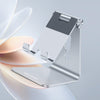

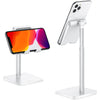
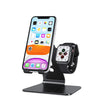
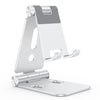

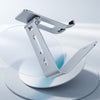

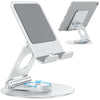
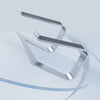
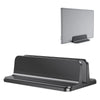
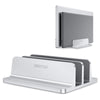
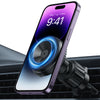
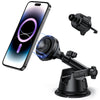
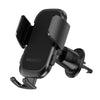
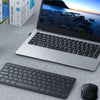
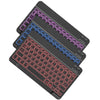

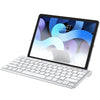
![[iOS System] Seamless KB066](http://omoton.com/cdn/shop/files/B00B24I4II-1_100x.jpg?v=1686815508)
![[Mac System] Seamless KB066](http://omoton.com/cdn/shop/files/B09899K4L6-1_c724630c-c160-4901-9900-f670acc91416_100x.jpg?v=1686732854)
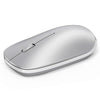
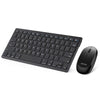
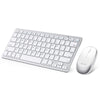
![[2 pcs] Full Protection A020-iPad Pro 11](http://omoton.com/cdn/shop/products/3a69674b6a96497b2ffd7f3025a80d58_e9954f3e-86f5-43e6-9a80-575bcfebd158_100x.jpg?v=1686381536)
![[2 pcs] Full Protection A017 - iPad 10.2 inch](http://omoton.com/cdn/shop/files/61tTSoyyuuL._AC_SL1500_100x.jpg?v=1686021560)
![[3 pcs] Rugged & Robust A013-iPhone 11/XR](http://omoton.com/cdn/shop/files/61po0_qv46L_100x.jpg?v=1686032850)
![[3 pcs] Rugged & Robust A013-iPhone 14](http://omoton.com/cdn/shop/files/16c0b02250912a03578c8b2af6825f11_100x.jpg?v=1686708163)
![[3 pcs] Rugged & Robust A036-iPhone 14 Pro](http://omoton.com/cdn/shop/files/1_2_100x.jpg?v=1686022078)
![[3 pcs] Rugged & Robust A013-iPhone 14 Pro Max](http://omoton.com/cdn/shop/files/1_2_2_100x.jpg?v=1686023071)
![[3 pcs] Rugged & Robust-iPhone 13](http://omoton.com/cdn/shop/files/71HO0AZn0BL_100x.jpg?v=1688522739)
![[3 pcs] Rugged & Robust-iPhone 13 Pro](http://omoton.com/cdn/shop/files/71pE0jfT24L._AC_SX679_100x.jpg?v=1688523892)
![[3 pcs] Rugged & Robust-iPhone 13 Pro Max](http://omoton.com/cdn/shop/files/71c1zssdVHL._AC_SX679_100x.jpg?v=1688527213)
![[3 pcs] Rugged & Robust A024-Samsung Galaxy A14](http://omoton.com/cdn/shop/files/1_2_68d89e60-61af-4cba-9867-9a91941aee01_100x.jpg?v=1686030778)
